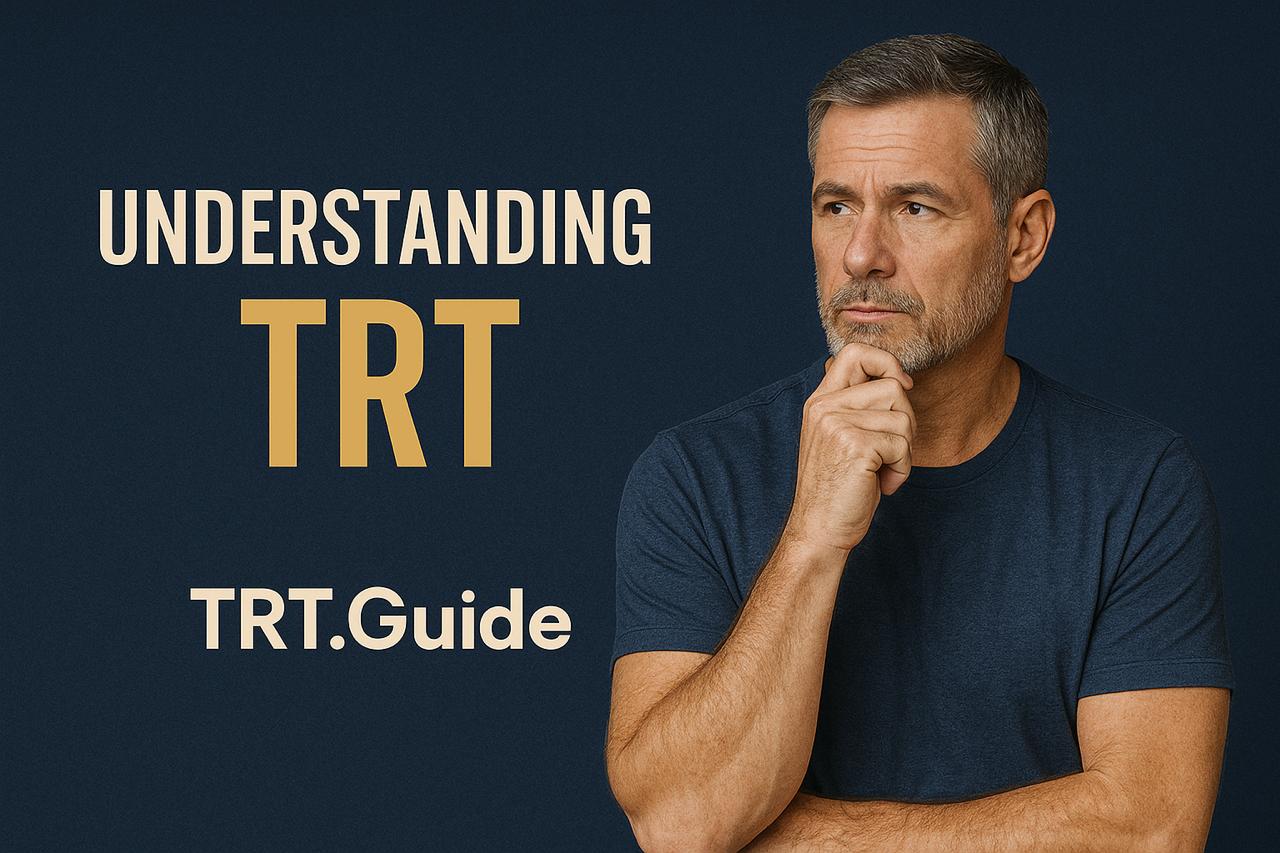Starting testosterone therapy is a decision that can completely revolutionize a person’s life, as it will serve to boost the energy levels, mood, and the pursuit of overall well-being. With all these benefits, there are reasonable doubts before initiating the treatment such as whether one can opt-out of testosterone therapy in its early stages. Is it possible to stop taking testosterone therapy – an issue many potential and ongoing participants should consider seriously?
Understanding what the discontinuation of the procedure will result in is the first step before anything else. Without question, you’ll undergo various physical and emotional changes; and the process of making a decision is far beyond being an easy one at the same time. Therefore, in this guide, we’ll look into what we can expect from the decision of ceasing the testosterone replacement treatment and what the decision should be based on your health condition.
Understanding Testosterone Therapy
When you receive testosterone therapy, you are given extra testosterone in the form of a prescription. It could be either the primary treatment for the deficiency or a supportive treatment to other therapies aiming at the correction of hormonal balance.
Look at what makes it necessary for testosterone therapy:
- Injection: Testosterone is generally given through muscle intravenous or subcutaneous shots every 1-2 weeks.
- Patch: You can use the patch to administer testosterone through the skin and it will charge you with the adequate dose of testosterone.
- Gel: In the gel form, testosterone is released through the skin and then slowly absorbed into the penile cavernous tissue through the skin blood vessels, where it can exert its function, at constant rates.
- Pellets: Commonly, testosterone pellets, when placed under the skin, release the hormone in a slow, steady manner for three to six months.
One must be aware of the plusses connected with testosterone therapy. Reliable sources show that such therapy can result in an increase in muscle mass, reduce fat in the body, improve mood, and cognitive function. In one study, it was noted in a Journal of Clinical Endocrinology and Metabolism article that these benefits were extremely significant in terms of the connection between healthy levels of testosterone and overall health.
It has been known that discontinuation of testosterone therapy could lead to various physical and emotional changes. A comeback of the symptoms of low T might be part of the withdrawal such as listlessness, irritability, and no desire for sex which are possible side effects. As reported in a study by the Society for Endocrinology, some people have symptoms of withdrawal that could result in changes in mood and well-being.
To stop a treatment, it is of great importance to consult the healthcare provider. Your provider being your guide can let you know the upsides and downsides of continuing or discontinuing the treatment. Instead of asking you to stop suddenly, he/she would prefer that you slow down the intake of testosterone. Among the recommended interventions throughout the decision-making process should be to examine the factors such as the presence of underlying health problems, which could have a say in this regard.
Finally, becoming highly knowledgeable about testosterone therapy is beneficial since there will be nothing that goes wrong when you are faced with decisions concerning your health. By knowing the potential outcomes of stopping therapy, a person is able to compare the options available, make decisions wisely in line with their future health goals.
Reasons Why You Should Choose Testosterone Therapy
The use of additional testosterone is what actually gives the green light to people with low hormone levels to significantly repair their health and quality of life. In most cases, the choice of this therapy is made by the persons who are willing to specifically target their symptoms and also to some extent feel better generally.
Health Advantages
The therapy of testosterone offers a variety of health benefits. You will feel a ramp-up in your energy levels, which in turn will positively impact your daily life, and productivity can go up. The studies also show that a better mood is usually a side effect of the therapy, which is the main reason for decreasing the incidence of depression and anxiety among people. It does not require much research for us to know that good health is associated with high bone density, which also means a low probability of stooping to osteoporosis.
Furthermore, medical intervention with testosterone is a reliable way of achieving more muscle mass, which subsequently enables the body to maintain strength and physical abilities as it progresses in age. The information issued by the Journal of Clinical Endocrinology and Metabolism is convincing and in support of the patients’ health markers which have been influenced very positively by the therapy. The follow-up checks carried out at regular intervals during the patient’s treatment period provide a significant part of that phase of treatment when it comes to the determination of the doses and treatment approaches that the patient has the best response to.
Enhancement of Life Quality
Quality of life in most cases increases dramatically when individuals receive testosterone therapy. One of the improvements often noticed is that there is a great increase in sexual desires, which leads to better sexual health and intimacy in relationships.
A further major impact from the change in energy and motivation is that you tend to lead very active lives, and this in turn is giving you the pleasure of constant participation in your favorite hobbies or social activities. These changes have resulted in many more people reporting that they are now feeling more confident and have higher self-esteem, which further positively affects the outcome of both the personal and the professional life.
The brain, through therapy, will have some of its cognitive functions enhanced and this will help the patient in achieving daily tasks. All in all, the therapy of testosterone will make a significant impact on prominent, more satisfying aspects of life.
Is it Possible to Discontinue Testosterone Replacement Therapy?
Through the quitting of testosterone therapy being an action that was initiated it is not only probable that a person can do but also the person is in a position to work it out, but it requires careful consideration of several things. The proper understanding of the implications of discontinuation is what keeps your current and future health and well-being intact.
Questions to Answer
When it comes to the contemplation of ending testosterone therapy, the diagnostics on diverse dimensions should come to your head at a go which includes health status, treatment period, and symptom control. Count the pluses of your treatment, like the energy boost or the mood improvement, for estimating the necessity of ongoing therapy. Your healthcare provider can help you decide on your health objectives and find the effect of ending the therapy.
It would be vital to know if there’s any hidden health issue that would not make you stop using that hormone. Consider the changes in your personal life that may be affecting your hormone levels, for instance, change of diet or activity level. Be ready to deal with the fluctuations in your mental and emotional health because the situation might be more challenging than being just “manageable by yourself.”
Dangers of Quitting
Owing to the fact that stopping testosterone therapy is accompanied by a range of risks, this action may not be the most lucrative one for many people. A patient may observe the same symptoms of low testosterone they had before, such as weakness, changes in mood, and decrease in sex drive appearing again within a couple of weeks.
Not to say that some people may feel the withdrawal symptoms which come with feeling irritated, worried, and even depressed. The majority of studies advocate for gradual weaning instead of a sharp cut-off because research findings tend to support the end of magnitude tapering compared to the sudden stop.
Those who have been relying on the therapy to maintain the benefits they reaped from it could be exposing themselves by experiencing muscle atrophy and bone loss. It is also the case that one’s cognitive and emotional functions are negatively affected, which diminish the person’s overall living standard. Referring to a qualified doctor when planning to discontinue your previous plan guarantees the right decision and ensures a successful shift.
Managing Testosterone Therapy
Administration of testosterone therapy is performed through supervision of its levels and possible correction of doses by professional endocrinologists to ensure successful treatment without adverse effects. A clear understanding of these components is crucial in protecting your health while using the treatment.
Regular Monitoring
Regular checks for the level of testosterone prove that the treatment is working well and that no harm is being caused. At the beginning of the therapy, the doctor might do blood tests every 3 to 6 months. These tests not only measure your hormone levels but also they are used to spot any liver or kidney problems brought about by the therapy and other side effects like change in red blood cell count.
The regular visits to the doctor serve as a health status indicator, as they evaluate your transforming physical state and your psychological wellness together. Do not hesitate to share with your doctor about your new symptoms; they can quickly recognize your deteriorating health by noting these disorders. Moreover, while one’s physical states such as energy, mood, or libido may fluctuate over time, it is critical that their healthcare provider is aware of them to judge the treatment performance. Also, the whole process of open communication creates a platform for any required interventions to be effected, making the outcome of the testosterone therapy as great as it is achievable.
Adjusting Dosages
Reduction, as well as an increase in the dosage given to a patient under testosterone therapy, is sometimes necessary to achieve the desired health benefits from the treatment. Later, the doctor using the lab results and your reaction to the therapy can consider some changes in the dosage of your testosterone. Typically, these changes are about increasing or decreasing the administered dose or switching the way it is administered.
If the drug concentration is not enough, some of the manifestations that it is too low include loss of energy and mood swings, whereas, excess testosterone, on the other hand, may cause irritability and a sudden acne attack. A gradual transition is the most advisable since it allows the body to adjust naturally and the discomfort is less.
Furthermore, test the level of your hormones in the body using blood samples provided the levels are close to normal. Also, it is of great importance to see the doctor for the most suitable doses considering your continual assessment determining if the dosage suffices as well as the therapy being fitted to what is best for you, thus striking a balance between the two extremes.
Conclusion
Deciding to stop testosterone therapy is not a simple matter and it should be weighed up thoroughly. First of all, you need to recognize where you are in your health now, how much your former symptoms of low testosterone will return, and whether the effects of the treatment are less this time. On the other hand, a visit to your healthcare provider will be the wisest thing to do, as he/she can help you figure out this whole process and ensure that it is safe for you. Moreover, if it is needed, a specialist might go for slow tapering of dosages with the patient.
With the health and happiness of yourself being the first priority. Please, get informed and tell your doctor about your needs so you both can agree on the right path to good health.
Frequent Ask Questions
What is testosterone therapy?
The concept of testosterone therapy is the introduction of the hormone, which is testosterone, in the organism of the patient, where it is not enough for the consequent improvement of particular symptoms, e.g., fatigue, depression, and decreased libido. In order to upgrade mood, enhance vigor, and obtain overall well-being, the latter can be conducted through either injections; the use of patches, gels, and pellets, which is used for energy rise; the achievement of a better mood; and the getting of well-being.
What benefits can I expect from testosterone therapy?
Testosterone therapy’s major advantages include an upsurge in energy levels, an overall better mood, a higher bone mineral density, putting on muscle mass, and a rise in the mental activity of individuals. Through their therapy cycle, individuals become more confident, and the latter will not only have a better libido but also life in general will experience a significant improvement.
Can I stop testosterone therapy once I start it?
Yes, without a doubt, the administration of testosterone can be stopped, but the first thing to do is to talk to a health care staff person or a medical doctor. The unpleasant symptoms, withdrawal effects, and in addition to them a decrease in the muscle and bone mass may be experienced if the medication is stopped without gradual decrease.
What is the right way to manage testosterone therapy?
Following these steps, scheduling appointments on a regular basis, and regulating doses are the most important aspects of managing testosterone therapy. In the first 6 months, blood tests should be taken for adjusting the hormone levels and controlling the side effects, and together with that, you and your healthcare provider should develop an honest opinion.
What are the things I should keep in mind before discontinuing testosterone therapy?
Before the timeout of testosterone therapy, you need to be considerate of your, previous, present and the future, the symptoms’ control mechanisms, and the potential risks which the termination may involve. Decisive and efficient problem solutions depend on the effective communication between the healthcare provider and the patient about these matters.






